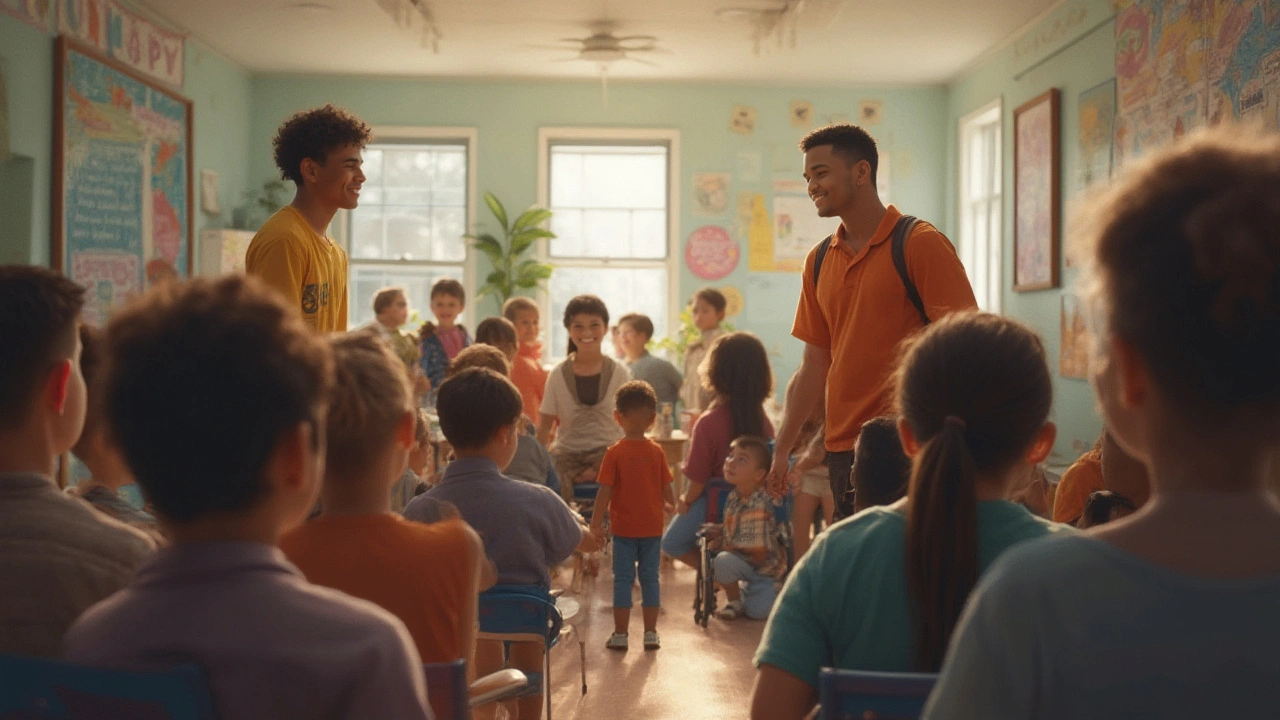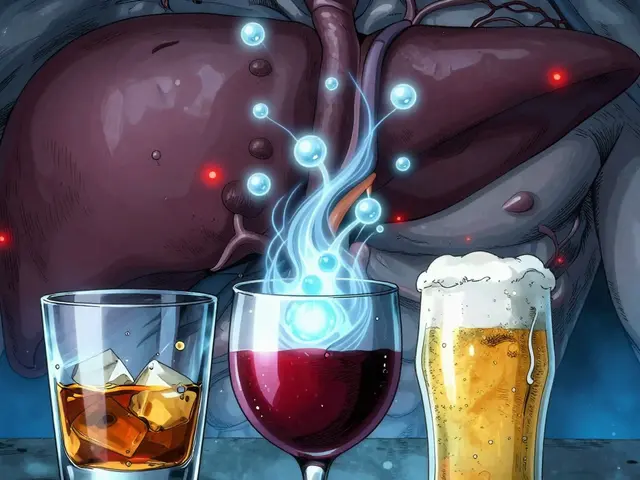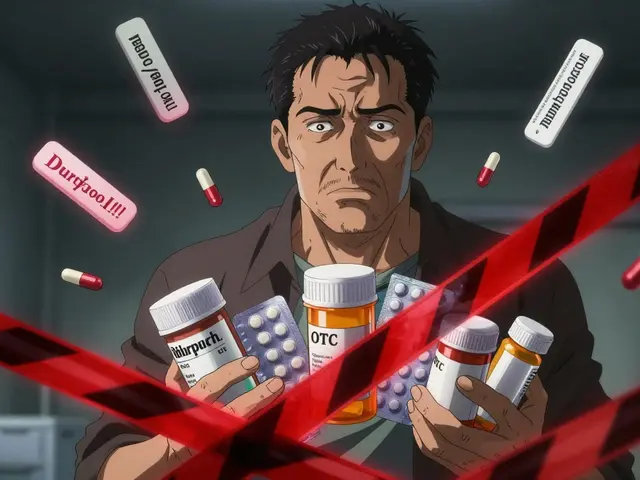Did you know that people with intellectual disabilities are up to three times more likely to experience mental health conditions than those without? That’s a huge gap, but not enough people are talking about it. The two often go hand-in-hand, yet mental health struggles can be missed or misunderstood, leaving individuals without the help they need. Families might notice changes, teachers might have a hunch, and caregivers sometimes feel like something isn’t quite right – but often, the pieces don’t click together. Stepping up to bridge that gap can literally change lives. When mental distress gets mistaken for just “challenging behavior” or overlooked as part of a person’s disability, the root cause remains untreated and everyone loses—especially those who are most vulnerable.
Why Intellectual Disabilities and Mental Health Are Closely Linked
Let’s get straight into it: intellectual disabilities involve significant limitations in intellectual functioning and adaptive behavior. That can impact how someone learns, solves problems, or handles social situations. Add mental health struggles into the mix—like anxiety, depression, or obsessive thoughts—and everyday life quickly feels overwhelming.
The numbers make it clear: according to data from the CDC and several international studies, around 40% of people living with intellectual disabilities will experience a diagnosable mental health condition at some point. Compare that to about 15–20% in the general population. Why is the risk so much higher? There’s no single answer, but a few big reasons keep popping up.
- Communication barriers: When it’s tough to express feelings, describe symptoms, or ask for help, mental health issues might just simmer under the surface. Someone may act out, withdraw, or have physical problems like headaches or stomachaches, but the root depression or anxiety gets missed.
- Social isolation: Many people with intellectual disabilities have fewer friends or social opportunities, which is a known risk factor for depression and loneliness. Even light social rejection or bullying can have a much bigger emotional impact.
- Physical health challenges: There’s a higher rate of physical health issues—epilepsy, sleep problems, chronic illnesses—among this group, and those can directly make mental health worse. Imagine dealing with daily migraines and also trying to learn basic job skills.
- Stigma and discrimination: Many people still assume folks with intellectual disabilities “don’t get anxious” or “can’t be depressed.” These attitudes shut down honest conversations and cause long delays in getting help.
- Medications and side effects: Sometimes, the medications used for managing symptoms of intellectual disabilities or related conditions can affect mood, sleep, or cause side effects that mimic mental health concerns.
Family and professional caregivers sometimes chalk these frustrations up to behavioral challenges or the disability itself—not realizing that something like anxiety is working behind the scenes. That makes it all the more important to look beyond the surface.
Signs to Watch for: Not Just ‘Behavior’
The warning signs of mental health issues in those with intellectual disabilities can show up very differently than what most psychiatric textbooks describe. It’s easy to miss the signals if you’re looking for classic symptoms, like a teenager saying, “I feel hopeless.”
Instead, you might see:
- Sudden, repeated outbursts or aggression—when that wasn’t a pattern before.
- Withdrawal from activities or social groups they used to enjoy.
- Changes in eating or sleeping patterns—sleeping way more or less, or refusing meals for days.
- Regression in skills—like losing interest in dressing themselves or sudden bathroom accidents in someone who was previously independent.
- Repetitive movements or self-soothing behaviors, like rocking, nail-biting, or hand-flapping, amping up noticeably.
- Expressing things through art, play, or even body language instead of words. For example, repeatedly drawing sad faces, or consistently sitting alone at lunch despite offers to join.
| Behavioral Change | Possible Concern |
|---|---|
| Sudden withdrawal/isolating from peers | Depression or social anxiety |
| Unexpected physical complaints | Stress, anxiety, or depression |
| Repetitive outbursts | Anxiety, frustration, poor communication of needs |
| Regression in skill use | Increased stress or trauma response |
| Changes in eating/sleeping | Depression, anxiety, medical issue |
Even professionals with years of experience can miss the mental health aspect unless they look through the right lens. That’s one reason why plain talking and really listening—even if the person isn’t using words—makes a massive difference in recognizing distress.

How to Get the Right Help: Steps That Make a Difference
Okay, so you’ve spotted the signs or just want to support someone proactively. What now? First off, don’t assume everything you notice is just “part of the disability.” Mental health help works for people with intellectual disabilities, too—and often in creative, flexible ways! Even a simple change in routine or environment can help, so starting a conversation is never a waste.
- Start with a relaxed, judgment-free chat: Ask about feelings, even if that means pointing to faces on a chart, using emojis, or acting things out. Sometimes drawing or music works when words fail. Stay patient and let the person set the pace.
- Gather information: Keep track of patterns. Is the person sleeping less? Eating differently? Has there been a change in school or family life? These details help a professional spot what’s really going on.
- Set up a doctor or mental health appointment: Reach out to someone with experience in intellectual disabilities. Not all therapists or doctors are trained in this area, so check ahead—it makes the process go much smoother.
- Be prepared for a longer assessment: It’s not unusual for mental health evaluations to take several sessions to sort out what’s what, especially if there’s a lot of overlap between the disability and mental health symptoms. Bring notes, question lists, and observations.
- Ask about alternatives to talk therapy: Cognitive behavioral therapy (CBT) can work, but art therapy, music therapy, and even animal-assisted therapy have great track records. Flexibility is key.
- Look for community resources: Some cities have dedicated mental health supports for those with intellectual disabilities—think group activities, social skills classes, or special day programs designed by and for neurodivergent folks.
- Advocate, advocate, advocate: Sometimes you’ll need to push back if a teacher, doctor, or therapist dismisses mental health concerns as “just behavior.” Share research, bring in a second opinion, or ask for referrals until someone takes you seriously.
Building Lifelong Resilience: Tools, Routines, and Hope
Supporting mental health isn’t just about putting out fires when crisis hits. Shaping a life that’s as resilient, joyful, and safe as possible is the gamechanger. Mental wellness can (and does) thrive when there’s a plan, a clear support team, and a known toolkit. So what makes the biggest impact?
- Predictable routines: Whether it’s bedtime, school drop-off, or dinner, routines can bring calm and security. Big changes? Give plenty of warnings—visual schedules or checklists work wonders.
- Opportunities for choice: Letting someone pick their clothes, music, or snack—even small choices—builds autonomy, which research shows boosts mental health big time.
- Exercise and outdoor activities: Movement helps regulate mood, sleep, and attention. A walk around the block, splash at the community pool, or dancing in the living room each count.
- Building communication skills: More ways to express needs means less frustration. Picture cards, apps, hand signals—whatever works best for the individual.
- Peer connections: Friendship isn’t just a nice extra; it’s a basic emotional need. Group hobby classes, sports, or online communities give access to new or shared experiences.
- Parent or caregiver self-care: Burnout is real. Prioritize breaks, ask for help, and talk about your own feelings with someone you trust, too—modeling healthy coping helps everyone in the family.








Posts Comments
Michael Barrett July 10, 2025 AT 00:35
Ah, the nexus of intellectual disabilities and mental health is oft-overlooked in clinical discourses, yet one cannot overstate its critical import. Early detection mechanisms, especially in neurodevelopmental contexts, require rigorous application of diagnostic criteria that go beyond mere surface-level observations. For instance, we must consider not only cognitive deficits but concomitant affective disturbances that exacerbate the individual's psychosocial prognosis.
Support strategies, too, demand a multi-modal framework. It's insufficient to deploy generic interventions; instead, tailored approaches that account for idiosyncratic behavioral phenotypes are paramount. Moreover, fostering resilience is no mere platitude—it's the sine qua non for durable mental health outcomes.
Does anyone here have insights into scalable care approaches that integrate community resources alongside clinical services? That integration, I posit, could be transformational.
Inma Sims July 10, 2025 AT 01:41
Well, I must say it's refreshing to see a topic where actual nuance is needed! Intellectual disabilities coupled with mental health issues aren’t a one-size-fits-all scenario—far from it. Early detection is essential, yes, but how often do our systems falter because they choose cookie-cutter solutions over person-centric ones?
And speaking of support strategies, sparing a moment for emotional resilience-building is crucial. I wonder, how many practitioners actually prioritize emotional intelligence in their care routines? That’s where real progress lies.
Honestly, if we continue to ignore the emotional landscapes of these individuals, we might as well just be ticking diagnostic boxes. Food for thought, don’t you think?
Artie Alex July 10, 2025 AT 03:13
From a clinical psych perspective, the bidirectional causality between intellectual disabilities and mental health disorders should command our undivided attention. The intertwining of neurocognitive deficiencies with affective dysregulations presents a labyrinthine challenge necessitating stratified intervention models.
Considering this, the identification of prodromal symptoms becomes a pivotal endeavor, enabling prophylactic measures before decompensation ensues. Support strategies must encompass psychoeducational components, tailored behavioral therapies, and environmental modifications that collectively scaffold resilience.
Furthermore, policy frameworks ought to incentivize interprofessional collaboration within multidisciplinary teams for maximal therapeutic efficacy.
Virat Mishra July 11, 2025 AT 09:46
Honestly, a lot of this seems overcomplicated. People talk about early detection and care approaches like it's some magical fix. From where I stand, the biggest problem is that we’re not even getting the basics right. Families are struggling to cope because there’s barely enough support for normal life, let alone specialized care.
Sure, resilience is great and all, but what about structural issues like healthcare access or education funding? Those systemic problems weigh more heavily on these individuals than some fancy therapy techniques.
Maybe we need to focus less on highfalutin theories and more on real-world solutions that actually help day-to-day.
Keri Henderson July 12, 2025 AT 08:00
I completely agree that early detection and tailored support are key here. When working directly with families, the emotional toll can be immense — so building a supportive, empathetic environment is just as crucial as any technical intervention.
One thing that’s often missed is empowering the individuals themselves to participate in their care decisions as much as possible. Autonomy plays a vital role in strengthening their mental health resilience long-term.
Does anyone have experience with specific community programs or coaching methods that successfully integrate these principles? Sharing those could really help us all step up our game.
Tiffany Clarke July 12, 2025 AT 21:53
You know, this whole early detection thing sounds like a fancy way for professionals to pat themselves on the back. The real struggle is living with intellectual disabilities every day, and mental health support? It's often nowhere to be found when you really need it.
Support strategies should mean real people listening, showing up, and not just handing out pamphlets or checklists. Building resilience? Let's be real — when you're constantly overlooked, resilience isn't just built by strategy; it’s forged in hard-lived experience.
So yeah, I get the theory, but the practice still sucks for so many.
Sandy Gold July 13, 2025 AT 11:46
Oh please, the so-called 'practical ways to support' usually just end up being bureaucratic buzzwords. The article talks about spotting warning signs and building resilience like it’s some new groundbreaking stuff, but anyone mildly informed knows this is just repackaged common knowledge.
Honestly, if we want to make a difference, the first step is getting rid of the elitist gatekeepers in healthcare and social services. Otherwise, all we get are half-baked interventions that don't address the root causes.
Just my two cents, but sometimes the simplest ideas get lost in the overcomplication.
Adam Baxter July 15, 2025 AT 19:20
Hey folks! Really vital topic here, and I love that the focus is on actionable strategies for those impacted by intellectual disabilities and mental health challenges. Early detection isn’t just about diagnosis—it’s about empowering support systems to act proactively.
One approach I advocate is integrating interdisciplinary teams that include educators, therapists, and family members to create comprehensive care plans that evolve with the individual's needs. It’s about dynamic collaboration, not static frameworks.
Would love to hear your experiences or suggestions on effective models you've witnessed or participated in!
Write a comment